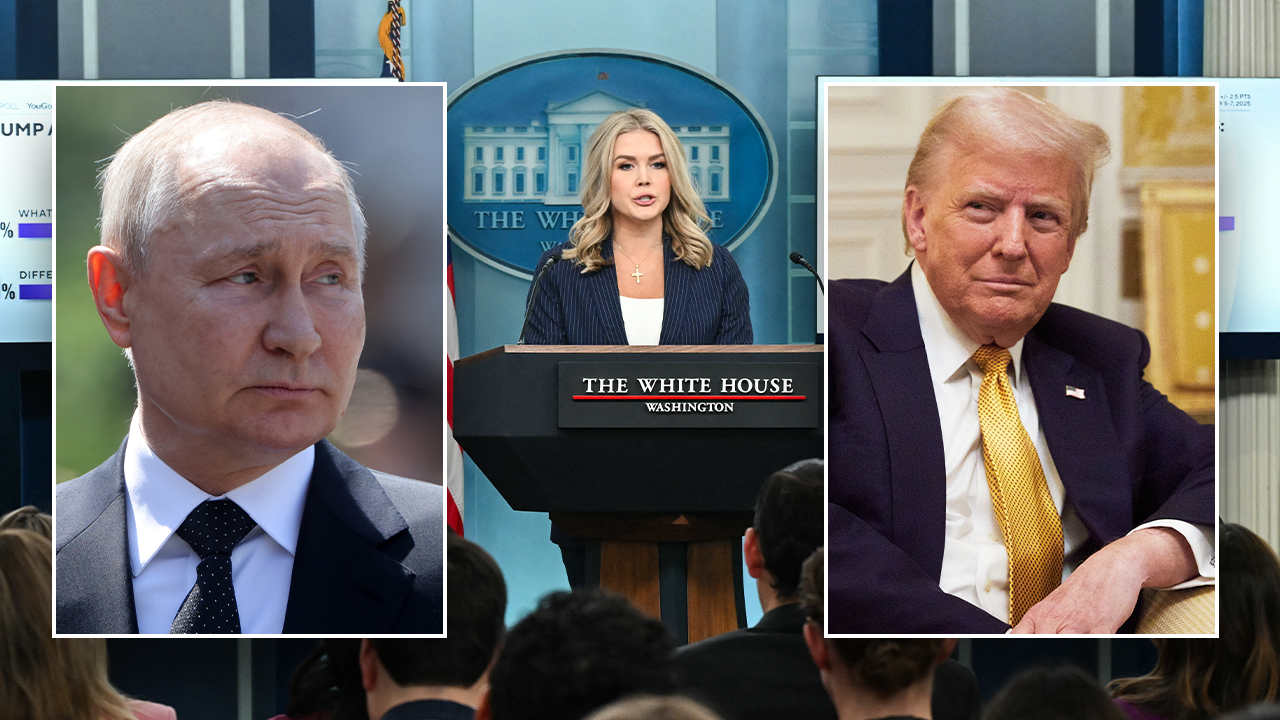Politics
Putin viewed as ‘great competitor’ but still a US ‘adversary’ as Ukraine negotiations loom, Leavitt says

Trump’s Perspective on Putin and Russia
The Trump administration has adopted a dual stance towards Russian President Vladimir Putin, viewing him both as a formidable competitor and an adversary. This nuanced perspective was highlighted during a press conference by Karoline Leavitt, White House press secretary, where she emphasized Trump’s approach to diplomacy. Trump’s strategy involves maintaining good relations while confronting wrongdoing, reflecting a stance of "peace through strength." This approach was evident in Trump’s recent communication with Putin, underscoring a pragmatic diplomatic strategy aimed at fostering cooperation where possible.
Initiating Peace Negotiations
Following a phone call with Putin, Trump announced the commencement of peace negotiations to end the Ukraine conflict via Truth Social. The discussion included plans for mutual visits and immediate talks led by key officials, including Secretary of State Marco Rubio and CIA Director John Ratcliffe. Trump also mentioned informing Ukrainian President Volodymyr Zelenskyy, signaling a proactive approach to conflict resolution. This initiative aligns with Trump’s campaign pledge to end the war swiftly, suggesting a strategic effort to leverage diplomatic channels effectively.
Key Players in the Negotiations
The negotiation team, as outlined by Trump, includes high-profile figures, raising questions about the exclusion of Special Envoy Keith Kellogg. Leavitt clarified Kellogg’s ongoing role, despite his absence from the leading team, emphasizing his contributions to reaching this negotiation phase. The Kremlin’s invitation for Trump to visit Moscow adds another layer to the diplomacy, though details remain scarce. This underscores the complex dynamics at play, with multiple channels and figures influencing the negotiation landscape.
Humanitarian Success: Marc Fogel’s Release
The release of Marc Fogel, an American imprisoned in Russia since 2021, marks a significant humanitarian achievement. Trump acknowledged Putin’s role in Fogel’s release, which occurred concurrently with negotiation announcements. This event highlights the potential for diplomatic success in resolving individual cases, offering hope for broader conflict resolution. Fogel’s return is a poignant reminder of the human impact of such negotiations and the importance of persisting in diplomatic efforts.
Reactions and Next Steps
Trump’s conversation with Zelenskyy was described as successful, focusing on an upcoming Munich meeting led by Vice President JD Vance and Secretary Rubio. While optimism is cautious, the administration’s efforts reflect a commitment to dialogue and peace. However, skepticism remains regarding the complexity of achieving a lasting resolution, given the deep-rooted issues in the conflict. This mirrors broader public sentiment, where hope is tempered by realism about the challenges ahead.
Conclusion: A Cautious Optimism
The Trump administration’s recent diplomatic maneuvers present a scenario of cautious optimism. The blend of negotiation efforts and humanitarian successes suggests a multifaceted approach to conflict resolution. While the path to peace is fraught with obstacles, the administration’s proactive stance offers a potential avenue for de-escalation. As the situation evolves, the focus will remain on whether these efforts can translate into tangible, lasting outcomes, influencing not only the Ukraine conflict but also Trump’s political trajectory.